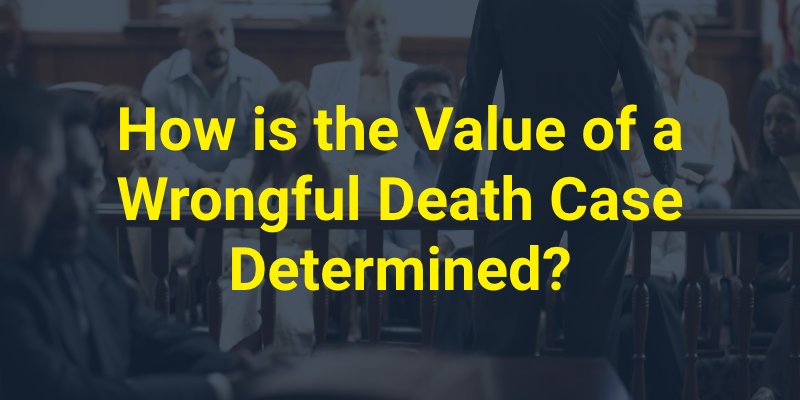Losing a loved one is beyond difficult, and if it’s caused by the negligence or wrongful act of another party, it can feel even more unacceptable. This heartbreaking circumstance is legally referred to as wrongful death and leaves emotional trauma in its path.
While no amount of money could ever make up for a lost loved one, there is legal recourse that can be taken in civil court. It often becomes vital for affected individuals to understand how these cases are valued, as losing a family member can have a significant strain on a family’s finances.

A wrongful death claim doesn’t have a “one-size-fits-all” value; it varies dramatically from case to case depending upon the specifics involved each time. However, certain factors are universally considered in these cases, including:
Relationship to the Deceased: The nature of the claimant’s relationship with the deceased, such as being a spouse, child, or parent, is a key factor. This relationship determines the level of emotional and financial support the claimant was receiving or expected to receive from the deceased, thereby impacting the compensation amount.
Lost Income and Earning Potential: The deceased’s current income, job stability, and future earning potential are critical in calculating the financial impact of the loss. This includes considering the deceased’s career trajectory, possible promotions, raises, and the overall financial contribution to their dependents.
Medical and Funeral Expenses: The costs incurred for medical care prior to death and funeral expenses are recoverable in a wrongful death claim. These expenses are factored into the claim to reimburse the family for out-of-pocket costs associated with the death.
Age and Health of the Deceased: The age and general health of the deceased at the time of death influence the claim. Cases involving younger individuals with longer expected lifespans may result in higher claims due to the prolonged impact of their absence, whereas pre-existing health conditions might be considered in assessing future life expectancy.
Insurance Policy Limits: When you file a wrongful death claim against a party, the damages are often paid out by an insurance company, and all of these companies implement policy limits. This refers to the maximum amount of money they are obligated to pay under the policy.
This limitation can be a hindrance to getting what you’re truly entitled to if your damages exceed these limits. If this is the case, a lawsuit would need to be filed against the defendant personally. This can be challenging, though, as many parties lack sufficient personal assets.
Punitive Damages: Punitive damages in Arizona are awarded in cases where the defendant’s actions are particularly egregious, demonstrating a reckless disregard for the safety and rights of others. These damages are not intended to compensate the plaintiff for losses but rather to punish the defendant for their wrongful conduct and to deter similar behavior in the future. However, it can increase a wrongful death award considerably.
To be awarded punitive damages, the plaintiff must provide clear and convincing evidence that the defendant acted with an evil mind – that is, with intent to cause harm or with a conscious disregard of a substantial and unjustifiable risk that significant harm would occur.
“…the defendant showed a conscious and deliberate disregard of the interests and rights of others. This can be shown, for example, by a pattern of dishonest or fraudulent conduct, or when the tort is committed for an outrageous purpose.”
Understanding all the ins and outs of a wrongful death case can be incredibly challenging, particularly while dealing with the emotional aspects of the loss. Fortunately, this is not something you need to navigate alone. Enlisting professional help from a Phoenix wrongful death attorney is the best chance you have of getting the compensation you truly deserve. For help with this difficult situation, don’t hesitate to contact us to schedule a free consultation.